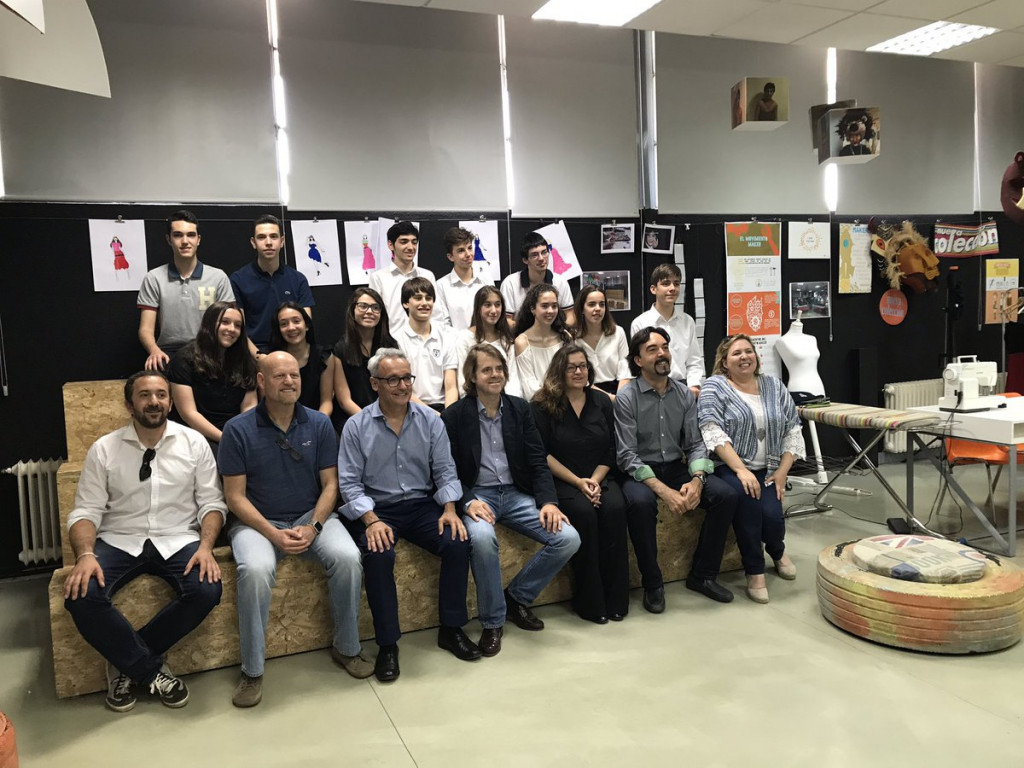Practice Description

SEKLab Junior
by SEK International School added on 18 May 2021
|
Brief description:
|
It is the first school-age entrepreneurship incubator in Spain. Through the program, students devise social entrepreneurship projects, based on STEAM, which are evaluated by community members (families, teachers, partner companies, etc.) and the winners receive funding and support from mentors to implement the idea. |
|---|---|
|
Photos:
|
|
|
Countries:
(where the practice takes place)
|
Spain |
|
Cities:
(where the practice takes place)
|
Madrid |
|
Organization name:
(running the practice)
|
SEK International School |
|
Organization type:
|
Commercial |
|
Contact person:
|
Héctor González |
|
Contact email:
(for further information and inquiries)
|
hector.gonzalez@sek.es |
|
Social media:
|
Twitter: @SEKLab_Jr_CC
|
|
Related resources:
(e.g., web site, publications,media)
|
|
|
Participants’ age groups:
|
14 - 18 |
|
Indicative number of participants:
|
Number independent |
|
Oriented to a specific gender?
|
No |
|
Frequency:
(for the same group of participants)
|
Other: Throughout the academic year |
|
Total duration:
(for the same group of participants)
|
Students work throughout the year and the competition has three qualifying phases. |
|
Location:
(where the practice takes place)
|
|
|
What are the role(s) of the adult(s) running the practice?
|
|
|
During the practice, participants…
|
|
|
Participants work…
|
|
|
What type of materials do participants use?
|
|
|
Pedagogical approach:
|
|
|
Social justice/equity approaches:
|
|
|
Does the practice have (explicit or implicit) learning objectives?
|
Explicit: Students learn to discover opportunities, plan a project and develop skills (communication skills, creativity, mathematics, etc.). In addition, through entrepreneurship, teamwork, responsibility or curiosity are encouraged, among other values. |
|
Is the practice (explicitly or implicitly) connected to school curricula?
|
Yes, explicitly |
|
If connected in any way to school curricula, which subjects are covered?
|
|
|
Does the practice aim to have an impact on the engagement / interest of participants with a particular scientific topic, concept, phenomena, theory or career?
|
Yes: Some students have aroused their interest in certain subjects or subjects, about which they initially had no appreciation |
|
Does the practice aim to have an impact on the attitude of participants with a particular scientific topic, concept, phenomena, theory, or career?
|
Yes: Many of the students discover the use of scientific or technological knowledge in solving problems. Some students in the social sciences area have worked more hours in the chemical laboratory with their project than their peers in health sciences |
|
Does the practice aim to have an impact on the behavior of participants related to a particular scientific topic, concept, phenomena, theory, or career?
|
Yes: Some students have discovered the use of knowledge from certain science subjects and projects have made them want to know more. |
|
Does the practice aim to have an impact on the development / reinforcement / practice of skills of participants?
|
Yes: The most established skills are the ability to plan, communicate and manage limited resources. In addition, they learn to coordinate work, respect opinions and the value of effort |
|
Additional notes:
|
Thanks to the SEKLab Junior project we have found a fun and motivating way to work on social entrepreneurship and involve families and the community. It is an incubator that begins in the classroom, but ends up going through different qualifying rounds. Those most innovative and viable proposals obtain financing and support from local entrepreneurs. It could provide information on some of the projects that have received external recognition from the school. |